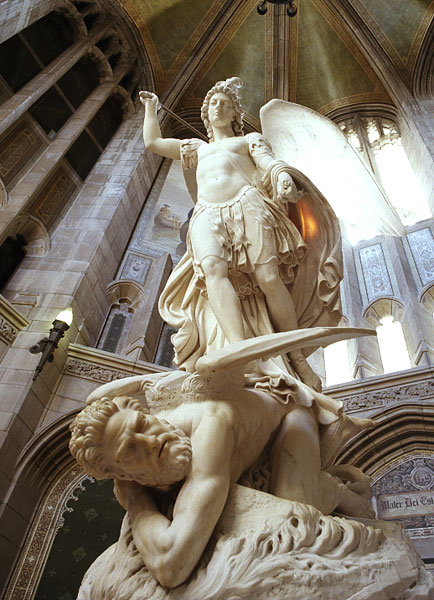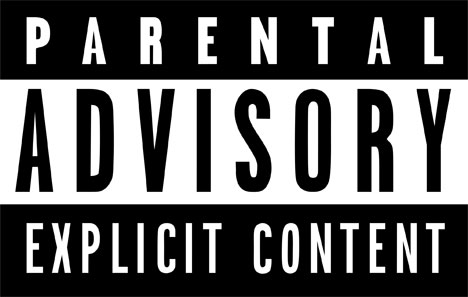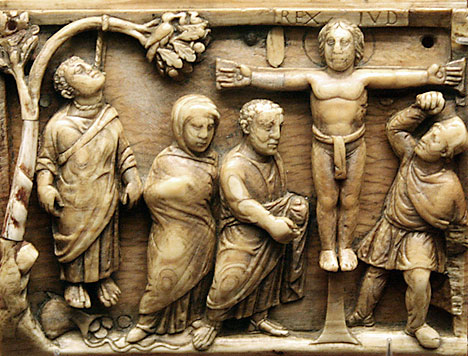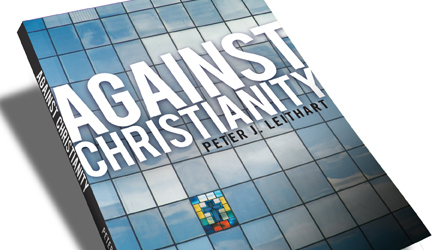Nov
18
2011

In Deep Comedy, Peter Leithart compares the Bible’s essentially comic and hopeful view of history with the Greco-Roman view, which is essentially and irredeemably tragic.
In Paul’s estimation, anyone who thought that the new life through Jesus pertained to some realm outside this history was simply an unbeliever. For the gospel says otherwise.
Continue reading
1 comment | tags: Church Fathers, Church History, David, Ecclesiastes, Faith, Gnosticism, Job, Literary Structure, Peter Leithart, Postmillennialism, Solomon | posted in Against Hyperpreterism, Biblical Theology, Quotes
Nov
6
2011

Part of the process of maturity for the Spirit-led Church is to go where no institution has gone before. The Jews crossed Land and Sea to make proselytes, their Temple a spring in the desert, but Christian mission was the over-tipping of the cleansing Laver, the baptism of the first century world. Of course, this was bound to have political consequences.
Continue reading
Comments Off | tags: Church History, Constantine, Ecclesiology, Peter Leithart, Postmillennialism | posted in Apologetics, Quotes
Oct
30
2011

Here’s the amazon description of Christian Smith’s recent book, The Bible Made Impossible.
Biblicism, an approach to the Bible common among some American evangelicals, emphasizes together the Bible’s exclusive authority, infallibility, clarity, self-sufficiency, internal consistency, self-evident meaning, and universal applicability. Acclaimed sociologist Christian Smith argues that this approach is misguided and unable to live up to its own claims. If evangelical biblicism worked as its proponents say it should, there would not be the vast variety of interpretive differences that biblicists themselves reach when they actually read and interpret the Bible.
Smith describes the assumptions, beliefs, and practices of evangelical biblicism and sets it in historical, sociological, and philosophical context. He explains why it is an impossible approach to the Bible as an authority and provides constructive alternative approaches to help evangelicals be more honest and faithful in reading the Bible. Far from challenging the inspiration and authority of Scripture, Smith critiques a particular rendering of it, encouraging evangelicals to seek a more responsible, coherent, and defensible approach to biblical authority.
Continue reading
2 comments | tags: Compromise, Hermeneutics, James Jordan, Peter Leithart | posted in Apologetics, Biblical Theology, Quotes
Jul
31
2011

A fascinating article by Peter Leithart for Biblical Horizons:
But Michael the archangel, when he disputed with the devil and argued about the body of Moses, did not dare pronounce against him a railing judgment, but said, “The Lord rebuke you” (Jude 9).
Jude 9 raises several difficulties (though not insuperable difficulties) for conservative commentators. The event that Jude recounts does not seem to be drawn from the Old Testament, and most scholars claim, based on statements of Clement of Alexandria and Origen, that Jude borrowed this story from the Assumption of Moses, an apocryphal work.
Continue reading
1 comment | tags: Jude, Peter Leithart, Zechariah | posted in Biblical Theology, Quotes, The Restoration Era
Jul
25
2011

Doug Wilson writes:
“As far as the Jews were concerned, the Bible teaches that because they were born into an Israelite family, circumcised in the covenant on the eighth day, they were attached to the tree. This attachment was an objective historical fact. But the sin and hypocrisy of many of them was also an objective fact, and the Lord of the Orchard consequently removed their branches, and grafted in other branches. Now the interesting thing here is that Paul turns and warns the Gentiles who had been grafted in against the very same sin committed by their fruitful predecessors” (To a Thousand Generations, p. 89).
Pastor Wilson writes that Israel is still the tree, but that the ascended Christ is Israel. I dispute the assumption that “natural branches” are still possible. The tree is now supernatural.
Continue reading
2 comments | tags: Baptism, Circumcision, Doug Wilson, High Priest, Peter Leithart | posted in Biblical Theology
Jul
14
2011

“…falling headlong, he burst open in the middle…”
Todd Robinson commented:
“I’ve enjoyed your particular brand of orthodox preterism. Working through Acts recently, I began to wonder what Michael Bull’s take on Acts 1:11 and 3:19-21 would be… Thanks for any insight.”
Continue reading
2 comments | tags: Abraham, Acts, AD70, Ascension, Atonement, Herod, Judas, Pentecost, Peter, Peter Leithart, Preterism, Urim and Thummim | posted in Against Hyperpreterism, Bible Matrix, Biblical Theology, The Last Days, The Restoration Era
Jul
13
2011

In Against Christianity (pp. 56-58), Peter Leithart writes:
One of the contributions of twentieth-century Catholic nouvelle theologie, and of Henri de Lubac and Hean Danielou in particular, was a rehabilitation of patristic and medieval typological exegesis of the Bible. Typological interpretation assumes that events and institutions of the Old Testament present, to use Augustine’s terminology, “latent” pictures of Christ. Typological interpretation, in short, sees the whole Bible as gospel, with the gospel narrowly conceived (the story of Jesus) as the culmination of a larger story.
Continue reading
9 comments | tags: Ecclesiology, Peter Leithart, Secular humanism, Typology | posted in Biblical Theology, Quotes
Jun
28
2011
or Holy Smoke

Doug Wilson writes:
“The debate in the early church was not whether the Jews should stop circumcising their sons; it was whether the Gentiles had to start. The decision of the Jerusalem council was not that individual Gentiles did not have to be circumcised. If circumcision had been required of them, it would have obligated them to live as Jews under the Mosaic law — which included the circumcision of all subsequent generations. Circumcision was not being waived for individual Gentiles; circumcision was being waived for Gentiles and their seed. So the Christian church did not insist that Gentiles circumcise their infants — not because they were infants, but because they were Gentile infants” (To a Thousand Generations, pp. 68-69).
Since there is no ex-plicit proof of infant baptism, Pastor Wilson’s self-stated, continuing goal here is to find im-plicit proof. My goal in the following is to show that not only do circumcision and baptism not correspond, but also that the solution to the dispute in this passage he refers to is given in the passage, leaving no room for an im-plicit reference to infant baptism.
Continue reading
16 comments | tags: AD70, Baptism, Circumcision, Covenant Theology, Culture, Doug Wilson, Federal Vision, Genesis, James, James Jordan, John, Literary Structure, Noah, Peter Leithart, Revelation | posted in Bible Matrix, Biblical Theology, Ethics, The Last Days
Jun
27
2011

How can we fix modern worship? Nearly all debate on this subject overlooks what the Bible has to say.
In From Silence to Song, Peter Leithart justifies the practice of finding patterns for our worship in the Levitical rites in the fact that King David did precisely this.
“…sacrificial worship did not cease with the coming of the New Covenant, but was transformed into a “spiritual sacrifice” and “sacrifice of praise.” We now do different things than ancient Israelites did, but those actions have the same meaning as the actions in the Levitical ceremonies.
Continue reading
2 comments | tags: Chronicles, Communion, David, Leviticus, Liturgy, Peter Leithart, Typology, Worship | posted in Biblical Theology, Quotes
May
2
2011
 .
.
“Modernity has for many moderns been a singularly joyless place… And no wonder: Continue reading
Comments Off | tags: Modernism, Peter Leithart, Philosophy | posted in Apologetics, Quotes



































